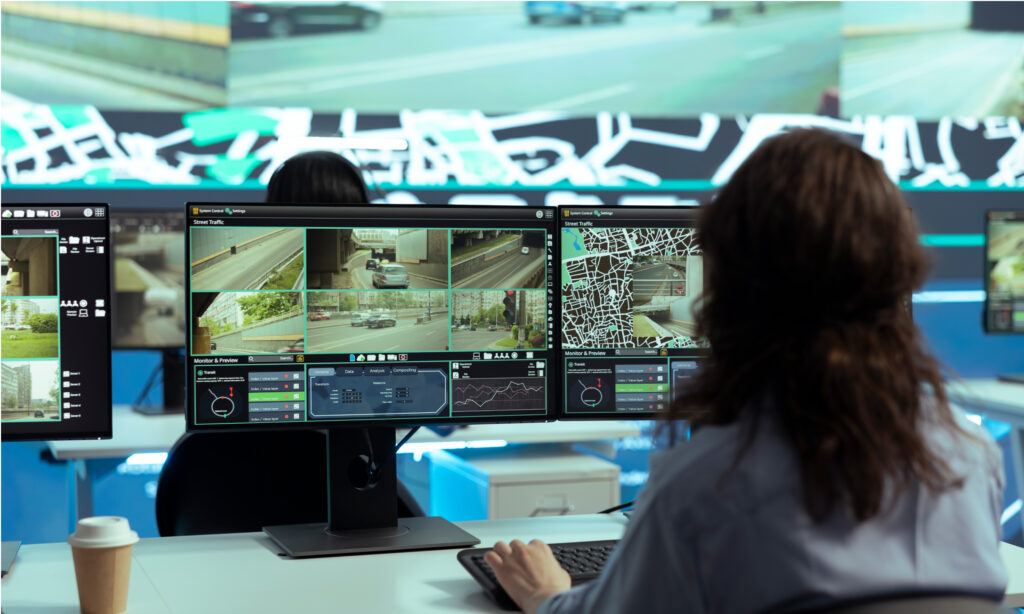In an era where security threats are becoming more complex and frequent, many Australians are left wondering: are our traditional alarm systems up to scratch? Unfortunately, the answer is often no.
Delayed response times, human errors, and reliance on outdated technology mean that traditional methods are struggling to meet modern security challenges.
As crime rates continue to rise, especially in urban areas, the demand for smarter, more reliable alarm response systems has never been greater. So, how can you ensure your home or business is adequately protected? This blog explores the emerging trends in alarm response that are set to revolutionise the industry.
1: AI-Powered Monitoring – Real-Time Threat Detection
The integration of artificial intelligence (AI) into alarm response systems is one of the most significant developments in security technology. AI can now analyse massive amounts of data from security cameras, sensors, and other devices in real-time, enabling faster and more accurate threat detection.
Benefits of AI in Alarm Response
- Instant threat identification
- Reduction of false alarms
- Automatic alerts and responses
- 24/7 monitoring without human intervention
AI-powered systems don’t just react; they anticipate threats before they escalate. Whether it’s recognising suspicious activity or detecting unusual patterns, AI is helping to minimise delays in response and ensure faster action when it’s needed most.
2: Smart Home Integration – Seamless, Personalised Security
Smart homes are becoming increasingly common across Australia, and alarm systems are following suit. Integrating your alarm response system with smart devices like cameras, locks, and thermostats allows for seamless, tailored security solutions.
Key Features
- Remote control via smartphone apps
- Real-time alerts for any unusual activity
- Automated actions, such as locking doors or activating lights
This level of integration empowers homeowners to take immediate action, no matter where they are. It’s a significant leap forward in personal security, putting control back into the hands of everyday Aussies.
3: Drone Deployment – Eyes in the Sky for Faster Responses
Drone technology is fast becoming a game-changer for large properties or remote areas where conventional alarm systems may fall short. Drones equipped with high-resolution cameras and sensors can patrol perimeters, providing an extra layer of surveillance.
Advantages of Drone Integration
- Real-time aerial surveillance
- Improved perimeter security
- Rapid response in remote or large areas
- Cost-effective for large-scale properties
Drones can also respond to alerts faster than human patrols, making them a valuable addition to any security setup. As drone technology becomes more accessible, it’s likely we’ll see more Australian businesses and homeowners adopting this innovative approach.
4: Predictive Analytics – Foreseeing Security Threats
With predictive analytics, the future of alarm response lies in preemptive action. By leveraging big data and machine learning, security systems can now predict potential threats before they occur.
How Predictive Analytics Works
- Analyses data from past incidents, social trends, and environmental factors
- Anticipates threats based on real-time inputs
- Allows proactive deployment of resources
This approach is a game-changer for businesses, enabling them to stay one step ahead of criminals by deploying security personnel or activating systems before a situation arises.
Biometric Authentication – Enhanced Access Control
Biometric authentication, such as fingerprint scanning and facial recognition, is quickly becoming a staple of modern security systems in Australia. These systems offer heightened security by ensuring that only authorised individuals can access certain areas.
Why Biometric Technology Matters
- Highly secure compared to traditional passwords or keypads
- Prevents unauthorised access
- Convenient and user-friendly
As more Australians embrace biometric authentication in their homes and businesses, we can expect this technology to play a critical role in the future of alarm response.
Challenges and Opportunities in the Future of Alarm Response
While the future of alarm response offers exciting opportunities, there are challenges that must be navigated:
Cybersecurity Concerns:
As alarm systems become more connected, they also become more vulnerable to cyberattacks. Robust cybersecurity measures, including encryption and regular updates, are essential to protect these systems from hackers.
Data Privacy Issues
The use of AI, drones, and biometric technologies raises questions about data privacy. Ensuring that personal data is handled securely and transparently is crucial for maintaining public trust.
Public Perception and Ethics
Technologies like drones and facial recognition can raise ethical concerns around privacy and surveillance. Addressing these concerns through public consultation and transparent policies is key to gaining public acceptance.
Cost Implications
While the initial investment in advanced alarm systems can be steep, the long-term benefits in terms of reduced crime and property damage often outweigh the costs.
Moving Forward
The future of alarm response in Australia is bright, with technologies like AI, drones, and predictive analytics leading the way.
By embracing these advancements, businesses and homeowners can ensure they stay ahead of security threats and minimise risks.
At Accord Security, we are committed to helping Australians safeguard their properties with cutting-edge, reliable solutions. Whether you’re looking to upgrade your home security or enhance your business’s alarm system, we’ve got you covered. Contact Accord Security today for a consultation and discover how we can tailor a system to meet your unique security needs.
Frequently Asked Question
Choose systems that incorporate AI and smart home integration, ensuring they can be updated with the latest technologies.
Drones offer rapid response times, improved coverage for large or remote areas, and real-time video surveillance.
Yes, predictive analytics can analyse patterns and trends to anticipate potential threats, allowing for preemptive action.
Biometric data, such as fingerprints or facial recognition, must be securely stored and processed to protect individuals’ privacy.
Ensure regular software updates, use encrypted networks, and employ strong passwords to protect your system from cyber threats.
